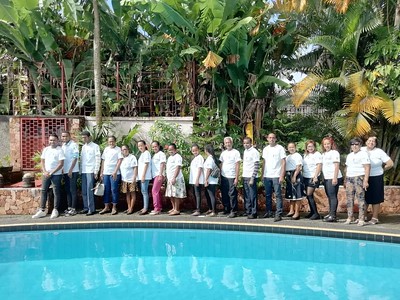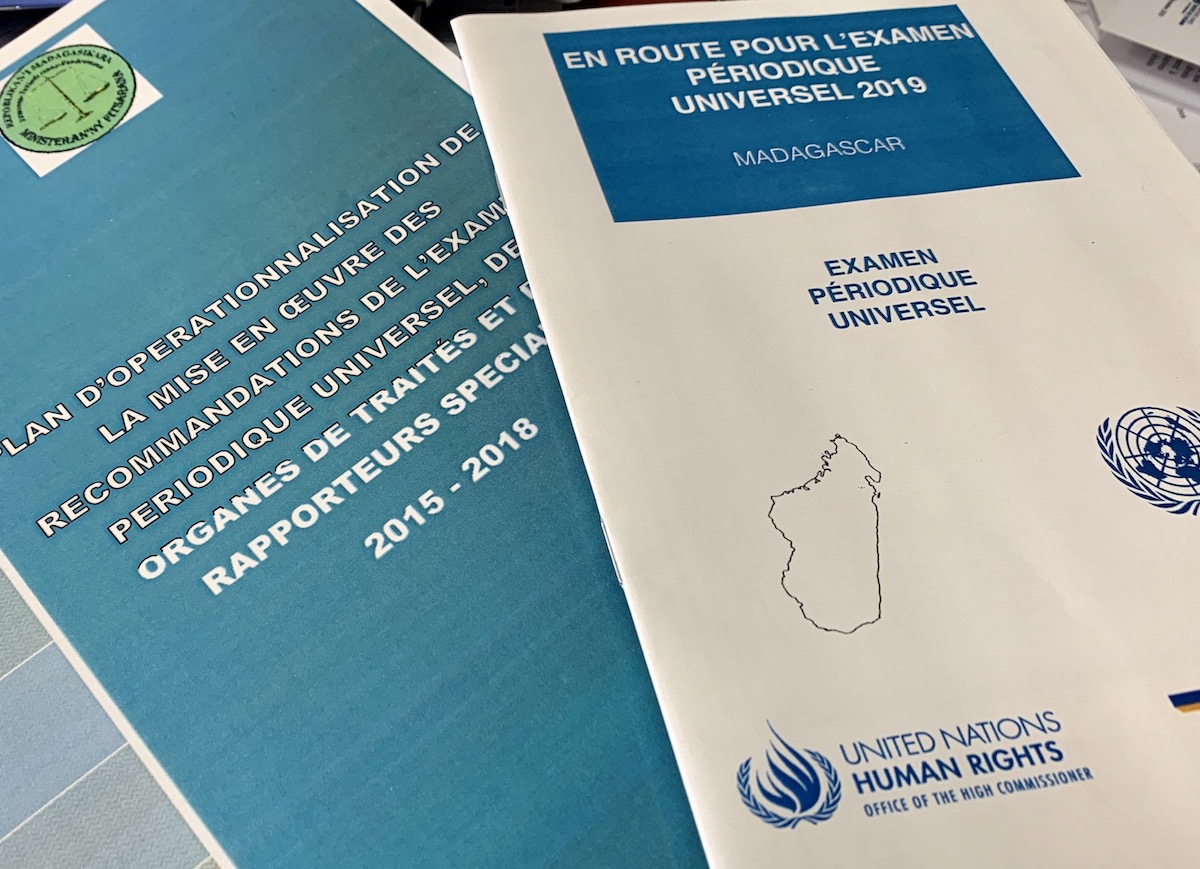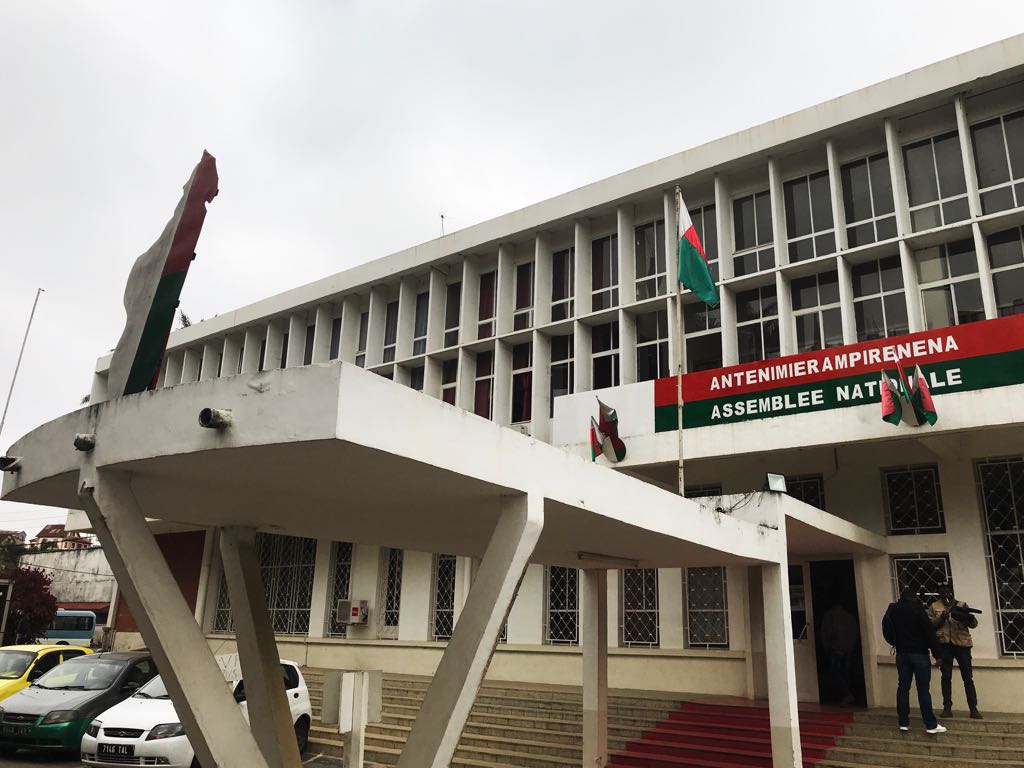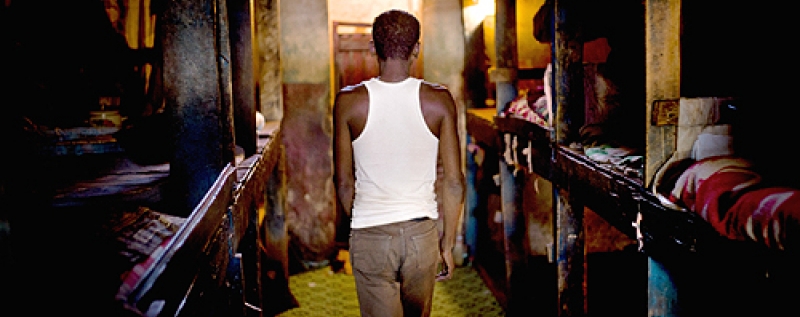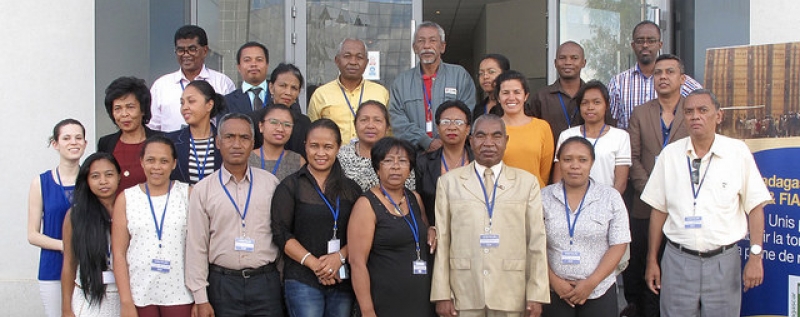In Geneva for the UPR pre-session: two human rights activists from Madagascar
Published on 06 Nov 2019, 01:07 PM
Two members of civil society organizations from Madagascar brought their concerns from the field in view to the third cycle of UPR
 Members of civil society from Madagascar during a bilateral meeting at UNOG
Members of civil society from Madagascar during a bilateral meeting at UNOG
From 7 to 11 October 2019, two representatives of NGOs from Madagascar traveled to Geneva to take part in the pre-session of the Universal Periodic Review (UPR), which will occur on 11 November. In particular, one representative of the Conseil National des Femmes de Madagascar (National Women Council of Madagascar) and one representative of YWCA (Young Women Christian Association) of Madagascar participated to the UPR mechanisms for the first time.
Agenda and advocacy
Firstly, the delegation attended a training session organized by UPR-Info. On 8 October, Noro Ravaozanany (National Women Council) and Dina Randrianaivojaona (YWCA) presented their written report and expressed their main concerns at the pre-session, along with other Malagasy human rights defenders. The same concerns were then raised in bilateral meetings with representatives of permanent missions at the United Nations in Geneva throughout the rest of the week. In concert with FIACAT and ACAT-Madagascar, CCPR Centre organized joint meetings with missions that have a particular interest for Madagascar and/or that had given the country recommendations during the previous UPR cycle. Namely: Ireland, the Netherlands, USA, France, Canada, Uruguay, Portugal, Germany, Switzerland, Holy See, Belgium, Brazil, Australia, Denmark, Chile, Togo and Montenegro. The Centre also participated in a meeting with the 28 EU member states and spoke on behalf of YWCA and National Women Council.
During the bilateral meetings, Ms. Ravaozanany presented the concerns expressed by the National Women Council of Madagascar in their written report: women’s representation in public and political life, gender equality before the law and non-discrimination, gender-based violence, and the legalization of abortion. Focus was also put on the national human rights institution in Madagascar (CNDH), fight against corruption, traditional justice and judicial guarantees, especially in detention facilities.
Ms. Randrianaivoja from YWCA stressed the utmost importance of children's rights and the superior interest of the child in areas such as healthcare and education. She focused on the need of a higher budget for both, in order to guarantee an expansion of the possibilities for people to access medical treatments (i.e. vaccination) and facilities, and to access schools especially for girls. Another concern she brought up was traditional harmful practices, such as child marriage, that need to be eradicated.
During these meetings, the NGO representatives handed out factsheets that were developed in cooperation with the CCPR Centre (available in French in the sidebar on the right). These factsheets include the main UPR recommendations made to Madagascar in the previous cycle, as well as similar recommendations from the Human Right Committee during the last review of Madagascar in 2017, and the evaluation of these recommendations up until 2019. Lastly it also contains suggestions from civil society about which recommendations to make during this 3rd cycle.
A holistic approach to human rights
The Centre supports a holistic approach to human rights. That is, using human rights mechanism to reinstate recommendations that have been expressed by other mechanisms in the past, but that have not been implemented yet. Madagascar was reviewed by the Human Rights Committee in 2017, and information on the follow-up was submitted with delay in mid 2019, therefore no assessment by the Committee is available yet. In any event, the UPR constitutes a timely and further opportunity to remind the State of its outstanding obligations vis-à-vis the international human rights mechanisms.
Highlights from the UPR
During the 3rd cycle of UPR, Madagascar was given recommendations by 82 States. They commended Madagasacar for the progress it has achieved since the last cycle in 2014, in particular regarding its National Human Rights Institution which attained the "A" status under the Paris Principles early this year; and regarding the ratification of CCPR OP2, CAT-OP (2017) and CRPD (2015). Furthermore, States have recognized efforts in addressing long-standing issues such as poverty, unequal access to education and healthcare.
However, there are still many challenges in the way. The majority of recommendations regarded gender-based violence and women's rights. States urged Madagascar to further expand and implement its legislation and policies on the matter, with the view to combating gender inequalities in public affairs, in the access to basic services, and to progressively eradicate gender stereotypes and related practices that are ultimately harmful and discriminatory against women. Another recurrent issue was child exploitation, especially sexual exploitation and child labor. Legislation on child marriage was also a frequent recommendation. Finally, many concerns were raised on torture and ill-treatment perpetrated by law enforcement personnel.
 Members of civil society from Madagascar during a bilateral meeting at UNOG
Members of civil society from Madagascar during a bilateral meeting at UNOG



